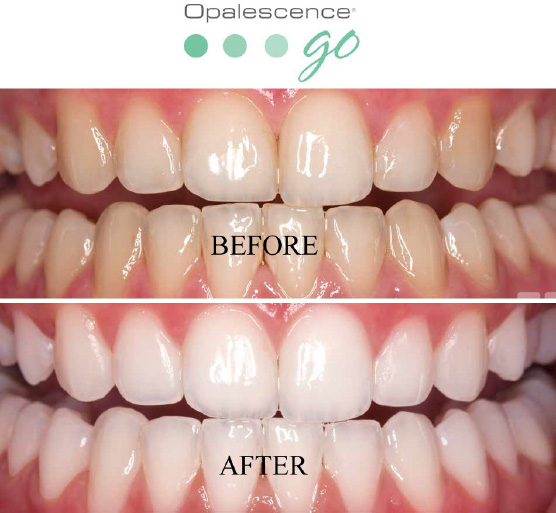In the journey of caring for your oral health, regular dental check-ups play a pivotal role in keeping your smile bright and healthy. These visits are more than just appointments; they are opportunities for skilled dental professionals to thoroughly assess your oral condition, detect problems early on, and perform gentle cleanings that remove plaque and tartar that you may not be able to reach through daily brushing and flossing. By making these check-ups a priority, you are not only safeguarding against potential dental issues but also ensuring that your gums stay healthy and vibrant. Embracing this proactive approach fosters a sense of security in your oral health routine, enabling you to face each day with confidence. Have you ever wondered how often you should visit the dentist or what happens during a dental check-up? It’s natural to have questions about oral health, especially since many of us may feel anxious about those visits. However, understanding the importance of dental check-ups can significantly enhance your commitment to your oral health and well-being.

This image is property of pixabay.com.
Understanding Dental Check-Ups
Dental check-ups are more than just a routine part of your health care; they play a critical role in maintaining your oral health. Think of these appointments as your personal health maintenance checks, similar to how you would regularly take your car in for servicing. During these visits, your dentist can assess the existing state of your teeth and gums and address any concerns that may arise.
What to Expect During a Dental Check-Up
During a typical dental check-up appointment, you can expect the following procedures:
- Preliminary Examination: Here, the dental hygienist will first gather some general information about your health, including any symptoms you’re experiencing or changes to your oral health routine.
- Dental X-rays: Utilizing XCP instruments, the hygienist will take X-rays to provide a detailed look at the structures beneath your teeth. These digital images are crucial for identifying issues that aren’t visible during the physical examination.
- Teeth Cleaning: This involves the removal of plaque and tartar buildup from your teeth. It may sound uncomfortable, but dental professionals know how to perform these cleanings softly and effectively.
- Final Examination by the Dentist: After the cleaning, your dentist will conduct a comprehensive examination of your teeth and gums, offering any recommendations necessary for your oral health.
Why Are Regular Check-Ups Important?
Understanding why these sessions are essential can be key to building a consistent dental care routine. Here are a few reasons why regular dental check-ups should be a priority for you:
- Preventive Care: Regular visits help to catch dental issues before they become significant problems. You can think of it as an insurance policy for your oral health—an opportunity to identify cavities, gum disease, and other conditions early.
- Professional Cleaning: Even with the best brushing and flossing habits, plaque and tartar can accumulate over time. Regular cleanings remove these deposits, preventing decay and gum disease.
- Oral Cancer Screening: During your check-up, your dentist will also screen for oral cancer. Early detection is crucial, and these professional evaluations can save lives.
- Customized Health Guidance: Your dentist can offer tailored advice based on your oral health status, including recommendations for at-home care and lifestyle choices that maintain health.
The Connection Between Regular Check-Ups and Oral Health
Maintaining good oral health doesn’t just keep your teeth and gums in excellent condition; it has a ripple effect on your overall well-being. Here’s why regular dental check-ups are vital for your oral health:
Early Detection of Issues
Many dental problems, such as cavities and gum disease, can develop without noticeable symptoms. With regular check-ups, your dentist will often spot these issues before they cause significant discomfort or complications.
- Cavities: These often start small but can grow into serious problems if left unchecked.
- Gum Disease: Early stages may not be painful, but untreated gum disease can lead to tooth loss.
Maintaining a Beautiful Smile
Regular cleaning and examinations help keep your teeth bright and your gums healthy. This care ensures you can proudly share your smile with others.
The Importance of Gum Health
Your gums are just as crucial as your teeth. Poor gum health can lead to systemic issues, including heart disease and diabetes. Regular check-ups help monitor your gum status and prevent conditions like gingivitis.
Psychological Benefits
There’s a psychological aspect to visiting the dentist regularly. Commitment to frequent visits can ease anxiety surrounding dental care, foster a sense of control over your health, and promote a proactive attitude towards preventing oral health issues.
Overcoming Dental Anxiety
It’s common to feel anxious about dental check-ups. Your emotions are valid, and knowing how to address this anxiety can help you maintain your oral health without fear.
Understanding Dental Anxiety
Many people experience discomfort at the thought of visiting the dentist. Whether it’s due to past experiences, the fear of pain, or even the sounds associated with dental procedures, these feelings can deter you from making those essential appointments.
Strategies to Cope with Anxiety
- Communicate with Your Dentist: Let them know about your concerns. Many dentists are compassionate and will take steps to ensure you feel comfortable.
- Bring a Support Person: Having a friend or family member accompany you can provide emotional support and ease tension.
- Practice Relaxation Techniques: Breathing exercises, visualization, or even listening to music can help you calm your nerves before and during your appointment.
- Consider Sedation Options: For some, sedation dentistry offers a way to undergo procedures while feeling relaxed and stress-free.
The Role of Dental Cleanings in Your Oral Health
Dental cleanings are essential services that go hand-in-hand with your check-ups. They act as a preventative measure to keep your mouth healthy and are crucial for various reasons.
The Cleaning Process
During a cleaning, your dental hygienist will:
- Remove Plaque and Tartar: Using specialized tools, they will carefully eliminate any deposits that have built up on your teeth.
- Polish Your Teeth: A dental polishing with a gritty paste gives your teeth a smooth and clean feeling.
- Fluoride Treatment: Some practices offer fluoride treatments after cleaning to provide extra protection against decay.
Importance of Regular Cleanings
- Preventing Gum Disease: Cleanings help prevent gum disease by clearing debris that bacteria thrive on.
- Lowering Risks of Systemic Diseases: Healthy gums can lead to lower risks of conditions like heart disease, making your twice-yearly appointments even more crucial.
- Maintaining Fresh Breath: Regular cleanings can help eliminate unpleasant odors caused by bacteria in the mouth.
- Building a Strong Relationship with Your Dental Team: Frequent visits can also help build a trusting relationship with your dental care providers, making your experience more enjoyable.

This image is property of pixabay.com.
Special Considerations for Those with Specific Dental Conditions
If you have existing dental health issues, your dental check-up schedule may differ from the standard recommendations.
High-Risk Patients
Patients with a history of gum disease, cavities, or other dental conditions may require more frequent visits—typically every three months. Here’s why:
- Ongoing Monitoring: Frequent visits help keep tracking your specific conditions in check.
- Customized Care: Your dental team can tailor their recommendations to accommodate your unique needs better.
- Enhanced Prevention: Regular cleanings and examinations can prevent potential problems from becoming serious.
Special Conditions That May Require More Attention
- Diabetes: Those with diabetes are at a higher risk for gum disease. Regular check-ups help mitigate this risk.
- Orthodontics: If you wear braces, more frequent visits can help keep your teeth clean throughout the treatment.
- Pregnancy: Changes in hormone levels can affect your gum health; thus, it’s essential to maintain regular visits during this period.
The Importance of Oral Hygiene Between Check-Ups
While dental check-ups are paramount, your oral health routine at home is equally vital. Practicing good oral hygiene between those visits will ensure your mouth remains healthy.
Daily Oral Care Practices
- Brushing Twice a Day: Make it a habit to brush your teeth for at least two minutes twice daily using fluoride toothpaste.
- Flossing Daily: Flossing helps eliminate plaque and food particles stuck between teeth, reducing your chances of developing cavities and gum disease.
- Rinsing with Mouthwash: An antimicrobial or fluoride mouthwash can help kill bacteria and strengthen your teeth.
- Healthy Eating Habits: Limiting sugary snacks and drinks can protect your teeth from cavities and decay. Opt for a balanced diet rich in fruits, vegetables, and whole grains for optimal health.
Regular Self-Exams
Become familiar with your mouth so you can identify any changes. If you notice issues like sensitive teeth, gum bleeding, or unusual lumps, reach out to your dentist as soon as possible.

This image is property of pixabay.com.
A Recap of the Benefits of Dental Check-Ups
By now, you should have a clearer understanding of why prioritizing dental check-ups is so important. Here’s a quick recap of the benefits:
| Benefit | Explanation |
|---|---|
| Preventive Care | Early detection of cavities and gum disease |
| Professional Cleaning | Removes plaque and tartar build-up |
| Oral Cancer Screening | Important for early diagnosis |
| Customized Health Guidance | Tailored advice based on your oral health |
| Psychological Benefits | Reduces anxiety and fosters a proactive approach |
Conclusion
Your oral health is an integral part of your overall well-being, and regular dental check-ups are vital for ensuring that your smile stays vibrant and healthy. While it can be easy to overlook these appointments or feel anxious about them, understanding their significance and potential benefits can motivate you to stay committed to your dental care routine.
By embracing regular visits, you’re investing in not just your oral health but your overall health, ensuring that potential issues are managed before they grow. Remember, just like your car needs regular servicing, so too do your teeth. Make that appointment—your smile will thank you!


